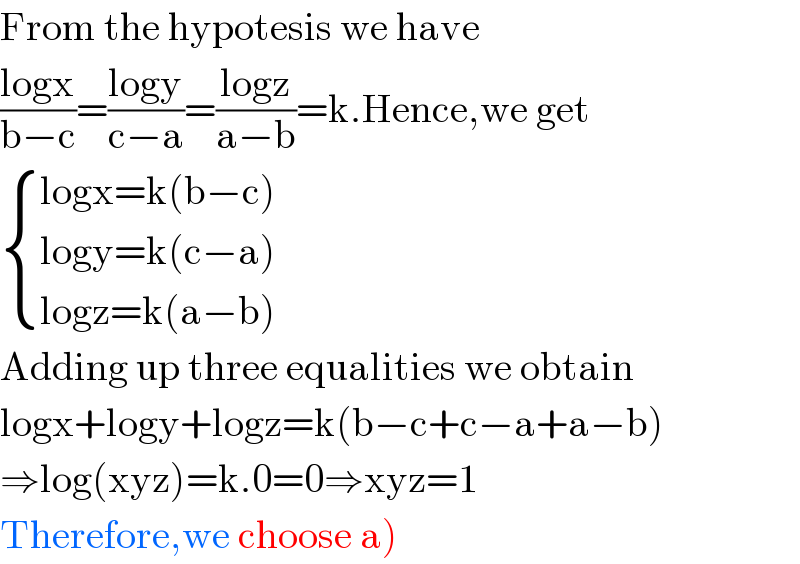
Question and Answers Forum
Question Number 113862 by Aina Samuel Temidayo last updated on 15/Sep/20

Answered by 1549442205PVT last updated on 16/Sep/20

| ||
Question and Answers Forum | ||
Question Number 113862 by Aina Samuel Temidayo last updated on 15/Sep/20 | ||
 | ||
Answered by 1549442205PVT last updated on 16/Sep/20 | ||
 | ||
| ||